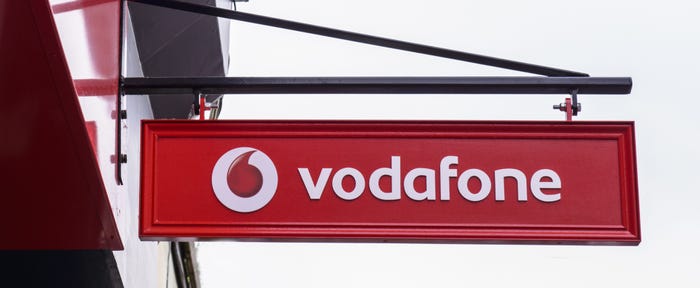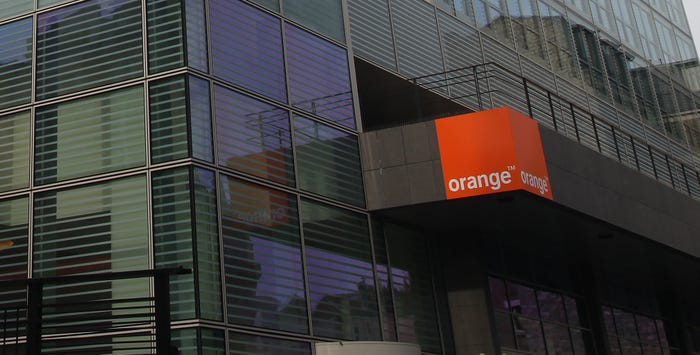How did the European telcos measure up over Q2?
The last couple of weeks have seemingly been a constantly growing tidal wave of quarterly numbers. Now the worst is behind us, there’s a chance to reflect and consider.
August 7, 2017

The last couple of weeks have seemingly been a constantly growing tidal wave of quarterly numbers. Now the worst is behind us, there’s a chance to reflect and consider.
The last couple of years have been mostly doom and gloom when it comes to telco financials, but this period of flurry seemed to be a bit different. There weren’t really any horror shows for the big boys, and most people will probably look back and say well done. So here is a round-up of how some of the major players did.
Deutsche Telekom (DT)

Those crafty Germans have done it again. Whether it’s baking a succulent loaf, brewing the perfect beer or nailing Q2 in the telco industry, the Germans are nothing if not dependable.
Profits of €5.9 billion, a tasty 9% boost, on total revenues of €18.9 billion, with the latter demonstrating an increase of 6%. Pretty good when you think about it. The big success story was out of the American business, with CEO John Legere continuing to lead his magenta army from strength to strength.
Perhaps the most notable trend here is the amount of money which the Germans are throwing around. It could be seen as very un-telco, but DT is certainly building a case for putting your money where your mouth is.
In Germany, the number of households which are connected via fibre has now increased by another 622,000 to 8.2 million. 228,000 new branded contract customers were added to the overall base. Data usage grew 10% sequentially. And LTE coverage now stands at 93%. In the US, T-Mobile added 817,000, while also decreasing churn to 1.1%. It also increased revenues by 8.5% to $7.3 billion. In the wider European business, mobile numbers went up by 372,000 to 24.9 million, while the LTE footprint now (theoretically) covers 102 million people.
This is where DT has set itself out from the pack. No-one else is spending the same amount which DT is on their networks or spectrum licenses. We shouldn’t really have to say this, but there needs to be big investments over the next couple of years to ready the world for the digital economy, but no-one else seems to be meeting the challenge.
A big bank account doesn’t necessarily guarantee success in the long-run, but spend it in the right places and it can be difficult to stop. DT is showing that spending money should not be a scary thought.
Grade: A
Keep up the good work.
Telecom Italia (TIM)

TIM is a very interesting business at the moment mainly because of the bickering which seems to be going on behind closed doors.
Vivendi seems to be wrestling for control of the TIM business strategy, and may have got its wish after the exit of Flavio Cattaneo and the appointment of its own boss, Arnaud Roy de Puyfontaine, as interim CEO. And to be honest, we’re starting to see why.
TIM is a powerful business in Italy, and this might be starting to show on the financials. The latest quarter rise to €9.772 billion, a year-on-year increase of 7.4%, with the core domestic business growing 3.4% to €6.965 billion and the cousins in Brazil increasing 23.4% to €2.293 billion. With numbers like these you might see whether Vivendi is getting its enthusiasm from.
But that is the issue at the distractions. How can a company operate effectively when there is no clarity of leadership or business strategy? The positive financial performance of the business was not really discussed in the press because of the pantomime which was causing such a kerfuffle in the boardroom.
Grade: B-
Good performance this time around, but distractions could lead to some pretty tough months ahead.
BT

BT seems to be that talented individuals who keeps getting led astray, ending up in the Headmasters office after being caught short.
Revenues across the business grew marginally to £5.8 billion, but it was those dodgy Italian accountants which came back to bite it. A payment of £225 million to Orange and DT dragged profits down by 42%, otherwise it would have been a good quarter. It would appear Orange and DT are craftier than they look, as both took out protection on their BT shares (which they gained as part of the EE acquisition) against a sharp downturn in the business.
Generally, BT did quite well. The newly merged consumer business has a very solid foundation to build the glories of convergence on top of, and customers numbers are continuing to head in the right direction. BT still heavily dominates the UK telco landscape, and it will for the foreseeable future, but there could be a change in the wind.
One area which BT needs to be very careful about is its investments in the network. Fibre is what everyone wants, but the team are continuing to explore the possibility of a mixed technology set up, including copper options. It is a sensible route to take for sure, but the mix needs to be carefully balanced. Too much towards the copper side and its nothing but ammunition for moaning competitors who have been ever so vocal through the last few years.
Another worry on the horizon will be the latest Ofcom review, with the regulator looking to cap charges at Openreach. BT will probably back the might of its legal army, but ultimately there will probably be a cap. How much of an impact this has on the Group’s financials remains to be seen.
Grade: D
Does some good work, but too prone to getting involved with the naughty boys.
Vodafone

A perfect picture of mediocrity. Revenues declined but share price increased as investors realized the telco hadn’t burnt as much cash as they thought. Across Europe, revenues were down 4.8%, while Africa, Asia and the Middle East brought in marginal growth of 1.2%. Total revenues declined by 3.3% to £11.474 billion.
The one glimmer of hope on the horizon is the recovery plan. We were treated to a demonstration of the new customer services strategy, which relies heavily on artificial intelligence and a more text-centric approach. Customers can go down the traditional route of talking to someone, but overarching trends are leaning towards text as the standard means of communicating. And Vodafone have picked up on this.
Should the initiative prove to be successful, it will be rolled out to the rest of the group. While the rest of the telcos are trying to bribe customers into contracts with values adds such as content, Vodafone has gone down the customer services route. It’s an interesting tactic, and we’ll be interested to see how it works out.
Grade: C-
Nothing but middle of the road, but some promising ideas for the next couple of months. Will be upgraded to a B if the customer services approach works.
Telefonica

Group revenues of nearly €13 billion, up 1.9% and a net income increase of 18.4%, to €821 million, both of which led to the group raising its forecasts for the year by 1.5%.
The big win here was the reduction in net debt, which has plagued the team for some time now. Quite a few business units which weren’t deemed business critical, including its 40% stake in its Telxius infrastructure business, have now been offloaded, providing a bit of breathing room for the management team. The figure is still higher than competitors, €48.5 billion, but it is heading in the right direction. This is not going to disappear overnight.
For a full review of the business over the last quarter, check out our sister site Light Reading, where Iain Morris gave his thoughts here.
Grade: C+
Still not living up to the potential, but heading in the right direction after some good work this term.
Orange

Another which has done a lot of positive work, but it hasn’t really paid off yet. The last quarter saw revenues of €20.276 billion, a 1.1% uplift year-on-year, but Orange has been quietly going about its work.
Like the average kid who sits in the middle of the class, rarely answering questions or doing anything too adventurous in the playground, Orange has been biding its time for a while. And like that average kid who will eventually surprise everyone in a couple of years, Orange is slowly putting together a promising convergence business.
The content business is looking promising, the bank has had a slight delay but is looking good, energy services are taking shape in the Polish business, and we haven’t even talked about traditional telco services yet. The number of FTTH premises is growing strong, as it the 4G footprint across Europe. Maybe Orange is just a bit of a late bloomer.
Grade: B+
Needs to come out of its shell a bit, but the future is looking very promising.
About the Author
You May Also Like










.png?width=300&auto=webp&quality=80&disable=upscale)


_1.jpg?width=300&auto=webp&quality=80&disable=upscale)